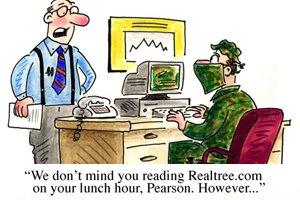Have You Seen His Work?
Bruce Cochran is a funny guy. If he wasn't, he'd starve to death.
Most outdoor celebrities and writers take their job seriously. They bring the great outdoors to your TV screen, computer monitor and magazine pages in a responsible fashion. They seldom joke around.
But not Cochran. He pokes fun of, teases and mocks sportsmen and women every day. As a result, Cochran's lighthearted look at the world of hunting and fishing has been entertaining us for decades. Since the '60s, his cartoons, stories and illustrations have livened up the pages of many outdoor magazines and books.

And some kind of artist he is. But he's not an uppity, downtown gallery artist. He's a good old boy from Kansas. The woods and waterways are his office and inspiration. Cochran has been hunting and fishing for more than 60 years. But it wasn't until after college when he bumped into an old high school buddy, who was an avid duck hunter, that Cochran got addicted to hunting.
My friend got me hooked on ducks in the '60s, and I've been at it ever since, Cochran explained. I own a 200-acre piece of land near Kansas City with three other friends, and we manage that for waterfowl. But I hunt deer, turkeys and squirrels there, too. Fishing is a primary passion for Cochran as well. He takes weeks off in the spring and summer to chase after bass and trout.
Pick up any of Cochran's books or magazines with his work, look at his cartoons, stories or illustrations, and you'll experience the feeling of being there that has made his work so popular with sportsmen everywhere.
Cochran got his start as an illustrator right out of college. I went to work for Hallmark Cards in 1960, writing and illustrating contemporary cards, he said. From there I branched out to cartooning for magazines and local advertising agency work.
Since then, Cochran's work has appeared in Ducks Unlimited, Field & Stream, North American Hunter, Petersen's Bowhunting, Pheasants Forever Journal and many, many more.
Don't Miss: Hilarious Bear Prank Goes Viral
In 1990, his book Buck Fever, a collection of deer hunting cartoons, launched The Fever Series, a string of successful outdoor cartoon books that included Bass Fever, Trout Fever and Duck Fever. In 2000, the series continued with Lab Fever, a collection of cartoons about the ever-popular Labrador retriever, and Golden Fever, focused on that loveable golden retriever, followed in 2003.
Other Cochran books such as Antlers Away, Marsh Madness and Revenge Of The Trout Zombies can best be described as full-color, heavily-illustrated humor books. These books often take breaks from Cochran's normal one-panel comic format to showcase his talent to write humor -- like witty definitions of the types of annoying fishing guides, and other amusing situations that every sportsman can relate to.
You can learn a lot about a man if you listen to what his customers say about him. I asked Dick Ellis, publisher and editor of On Wisconsin Outdoors, a hunting and fishing newspaper, what he thinks of Cochran: He is a laid-back Kansan who is able to live the dream of a life filled with hunting and fishing, because he is a master at creating outdoor comics, Ellis explained. Most people work to hunt and fish. He does too, but his mind really never leaves the field. I always wonder what's going on inside his head, and I am always eager to see what spills out on paper.
Ellis buys at least a dozen of Cochran's comics every year. It's definitely a popular part of the publication. Bruce takes everyday situations in the field and makes them outrageously but simplistically funny, and the facial expressions on his characters are just as humorous as the actual punch line, Ellis continued. He's deadline reliable and reliably funny. He always offers rough-sketch ideas of his comics that I can reject before I buy, but I don't remember ever rejecting one.
How He Does It
Being able to draw in a cartoon-like style is the least important part of being a cartoonist, explained Cochran. I think of Scott Adams, creator of the Dilbert comic — he can hardly draw at all, yet he is wildly successful.
Don't Miss: 11 Funny Looks You Get From Your Duck Dog
For Cochran, it's all about writing jokes. In my opinion, cartooning is a form of writing, he continued. I've been thinking up jokes for more than four decades, and I've developed a routine that works for me. First, I narrow down my thinking to one particular category -- say deer hunting or trout fishing. Sometimes it helps get my brain flowing to page through hunting and fishing magazines and catalogs, or reading outdoor websites. And, I usually carry a small notebook and pen whenever I go on a hunting or fishing trip, and when reading magazines and websites. If something happens or I read something that sparks a memory of an experience that happened years ago that's a good cartoon idea, I jot it down. Then later, I try to exaggerate these situations. The joke is often a result of my brain saying, 'What if this had happened instead of that?' Then I keep expanding on it until I am happy with the joke.
I write cartoon ideas best in the morning, and even then I can only do it for about an hour. After that I begin to lose my concentration, Cochran continued. After I think of an idea for a joke, I sketch it roughly in pencil, and I mean roughly, as in stick figures. If I create 10 or 15 cartoon ideas I consider it a productive morning. I'll file away these rough sketches for a few days, weeks or months. Later, I'll go through my stack of sketches and select the best ideas, often refining the captions and tweaking the drawings. I'll then do a final pencil drawing on tracing paper and email the rough drafts to editors. If an editor wants to buy the cartoon, I will finish it in ink, color it (if necessary), scan it and e-mail it on to my customer.
A Legacy of Laughs
So, what does the man himself think about his career, looking back?
I've been very lucky, explained Cochran. Looking back on my career, (which I hope is not over yet) I can't think of any one thing I would do differently, but overall, I think I would have been more entrepreneurial. I probably should have looked into more ways to expand my income earlier. I did try a couple of comic strips, and I hoped for a while to make it as a wildlife watercolor artist, and I tried a few books that I couldn't sell well, before I found success with Buck Fever. But, when you have house and car payments, and a wife and two kids to feed -- you're just not too eager to take risks. But early on, I had some stability with my income with my Hallmark contract, and I was selling a lot of cartoons for magazines and doing as much advertising work as I wanted. And for nine years I had a job cartooning for USA Today, so we were getting along fine. But I've often thought that I should have tried harder and earlier to do more to combine my personal interests in with making a living.
What I like most about my career now is that almost all of my efforts are focused on my personal interests, Cochran continued. I like to paint, draw and write as much as I like to hunt and fish, so I'm always doing something I enjoy. I'm glad I left Hallmark after only being there a short time, because it gave me the motivation and time to get more into cartooning for magazines and work on my drawing style. It also forced me to get used to the economic facts -- the ups and downs of freelancing.
A bird's eye view of Cochran's lifelong works is quite impressive. I bet if you stack all the magazines that feature one of his comics, the stack would be taller than the man himself. Although he is shrinking in his old age … (Sorry, Bruce, you are not the only one who can joke around).
But seriously, I'm glad Cochran creates cartoons for a living; they make me laugh. However, if he didn't, I don't think he'd starve to death. I know he has the skills to catch or shoot his own dinner.
Learn more about Cochran and his lifelong labor of love at: CochransCartoons.com, and you can search for his books for sale at Amazon.com.
Don't Miss: 15 Great Pranks for Deer Camp
Editor's note: This was originally published July 6, 2010.
Are you a deer hunter thirsty for knowledge? Check out our stories, videos and hard-hitting how-to's on deer hunting.







